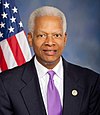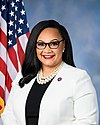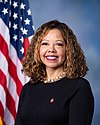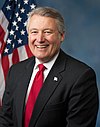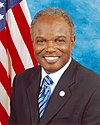Since Alabama became a U.S. state in 1819, it has sent congressional delegations to the United States Senate and United States House of Representatives. Each state elects two senators to serve for six years, and members of the House to two-year terms. Before becoming a state, the Alabama Territory elected a non-voting delegate at-large to Congress from 1818 to 1819.
Since Arizona became a U.S. state in 1912, it has sent congressional delegations to the United States Senate and United States House of Representatives. Each state elects two senators to serve for six years, and members of the House to two-year terms. Before becoming a state, the Arizona Territory elected a non-voting delegate at-large to Congress from 1864 to 1912.
Since California became a U.S. state in 1850, it has sent congressional delegations to the United States Senate and United States House of Representatives. Each state elects two senators to serve for six years, and members of the House to two-year terms.
These are tables of congressional delegations from North Carolina to the United States House of Representatives and the United States Senate.
Delaware became a U.S. state in 1787, which allowed it to send congressional delegations to the United States Senate and United States House of Representatives beginning with the 1st United States Congress in 1789. Voters in each state elect two senators to serve for six years, and members of the House to two-year terms. Before 1914 United States Senators were chosen by the Delaware General Assembly and before 1935 all congressional terms began March 4.

These are tables of congressional delegations from the State of Texas to the United States Senate and United States House of Representatives.
Since Arkansas became a U.S. state in 1836, it has sent congressional delegations to the United States Senate and United States House of Representatives. Each state elects two senators to serve for six years, and members of the House to two-year terms. Before becoming a state, the Arkansas Territory elected a non-voting delegate at-large to Congress from 1819 to 1836.
Since Florida became a U.S. state in 1845, it has sent congressional delegations to the United States Senate and United States House of Representatives. Each state elects two senators to serve for six years, and members of the House to two-year terms. Before becoming a state, the Florida Territory elected a non-voting delegate at-large to Congress from 1822 to 1845.
Since Kentucky became a U.S. state in 1792, it has sent congressional delegations to the United States Senate and United States House of Representatives. Each state elects two senators to serve for six years, and members of the House to two-year terms.
Since Colorado became a U.S. state in 1876, it has sent congressional delegations to the United States Senate and United States House of Representatives. Each state elects two senators to serve for six years, and members of the House to two-year terms. Before becoming a state, the Colorado Territory elected a non-voting delegate at-large to Congress from 1861 to 1876.
Since Idaho became a U.S. state in 1890, it has sent congressional delegations to the United States Senate and United States House of Representatives. Each state elects two senators to serve for six years, and members of the House to two-year terms. Before becoming a state, the Idaho Territory elected a non-voting delegate at-large to Congress from 1864 to 1890.
These are tables of congressional delegations from Virginia to the United States Senate and United States House of Representatives. Virginia's current U.S. Senators are Democrats Mark Warner and Tim Kaine. Virginia is allotted 11 seats in the U.S. House of Representatives; currently, 6 seats are held by Democrats and 5 seats are held by Republicans.

These are tables of congressional delegations from Pennsylvania to the United States House of Representatives and the United States Senate.
Since Iowa became a U.S. state in 1846, it has sent congressional delegations to the United States Senate and United States House of Representatives. Each state elects two senators to serve for six years, and members of the House to two-year terms. Before becoming a state, the Iowa Territory elected a non-voting delegate at-large to Congress from 1838 to 1846.
Since Kansas became a U.S. state in 1861, it has sent congressional delegations to the United States Senate and United States House of Representatives. Each state elects two senators to serve for six years, and members of the House to two-year terms. Before becoming a state, the Kansas Territory elected a non-voting delegate at-large to Congress from 1854 to 1861.
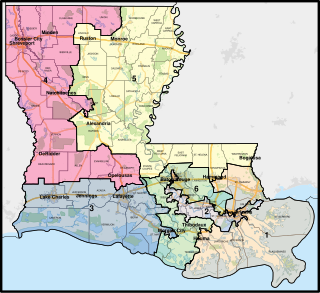
These are tables of congressional delegations from Louisiana to the United States House of Representatives and the United States Senate.

These are tables of congressional delegations from Maryland in the United States House of Representatives and the United States Senate.
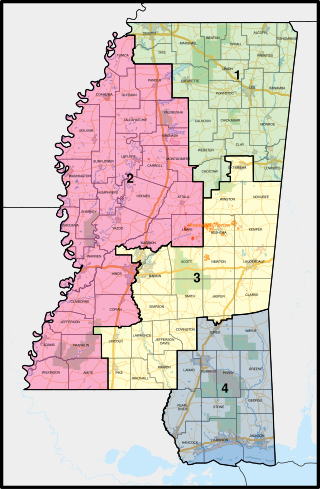
These are tables of congressional delegations from Mississippi to the United States House of Representatives and the United States Senate.
Since Illinois became a U.S. state in 1818, it has sent congressional delegations to the United States Senate and United States House of Representatives. Each state elects two senators to serve for six years, and members of the House to two-year terms. Before becoming a state, the Illinois Territory elected a non-voting delegate at-large to Congress from 1812 to 1818.

Georgia is represented in the United States House of Representatives by 14 elected representatives, each campaigning and receiving votes in only one district of the 14.








